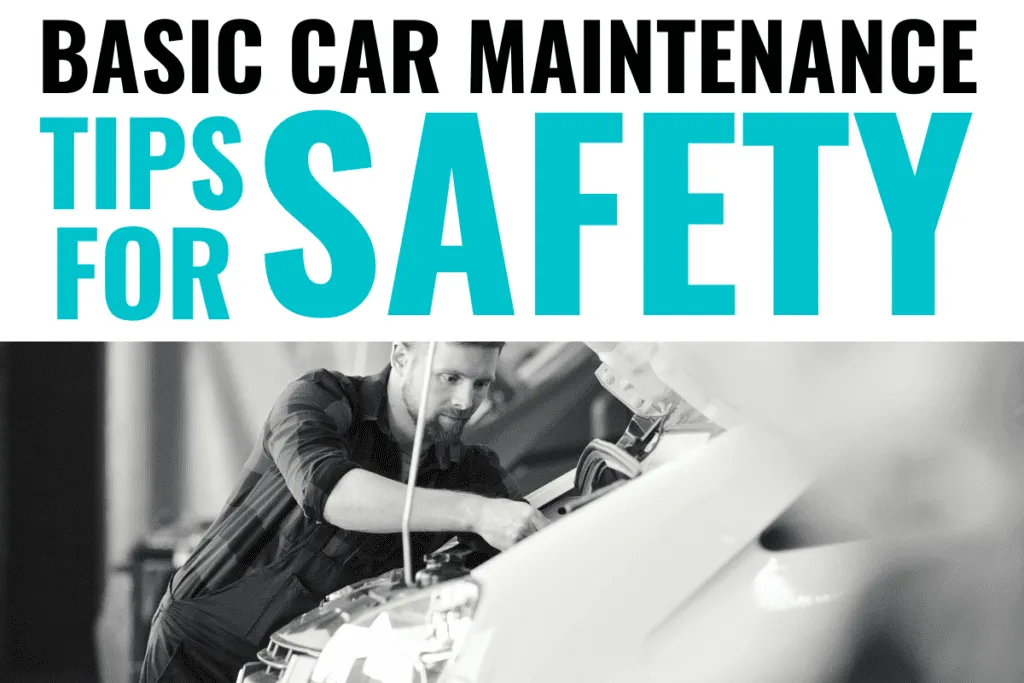Basic Car Maintenance Tips fort Safety
Have you ever got stuck in the middle of the road? Most of the time, this is the result of poor maintenance of the car. Cars, like all machines, need to be checked regularly to ensure all the parts are working as they should. The benefits of vehicle maintenance include:

- Optimum performance: Maintenance keeps your car in the best form for optimum performance.
- Fuel economy: Cars with clogged filters, deflated tires and unchanged engine oil consume more gallons per mile than their maintained counterparts.
- Saves on repairs: Most of the costly vehicle repairs are usually results of neglecting basic maintenance practices. When you do regular maintenance on your vehicle, it becomes easier to notice developing issues and solve them before they affect other parts.
- Saves lives: Most fatal accidents are results of poorly maintained vehicles. Driving safety makes maintenance costs a worthwhile investment.
- Avoiding road stuck ups: Conducting necessary maintenance checks before starting your journey can help prevent 80% of the road stuck ups.
Table of contents
How Often Should You Do Car maintenance?
Since auto maintenance has several benefits, should you do it daily? Here are some vehicle maintenance tips that you can use to determine when your vehicle needs maintenance.
- The car manual: It bears the manufacturer’s recommendation on the frequency of the regular of maintenance and repair. Even some basic practices such as oil change intervals and cleaning the fuel filters vary significantly among vehicle models. Though the significance of the car manual is apparent, there are still some car owners who do not read it.
- Intended use: If you plan to be on the road for a long ride, you will need to take your car for maintenance. It should be healthy enough to handle the workload you are about to place on it.
- Signs of deteriorating health: They include issues such as ignition problems, low oil, and fuel economy. Even if you have just left the service center, take the car back to the repair shop as soon as you notice these signs.
Basic preventive maintenance practices
Preventive maintenance is carried out to ensure your vehicle is always ready for the tarmac. They play a pivotal role in eliminating inconveniences on the road and the possible hazards associated with the car breaking down in the middle of the road. The common practices include:
- Checking transmission fluid and filters: The fluids include; the engine oil, power steering fluid and brake fluids, antifreeze coolant and windshield solvent. Cleaning of the filters is necessary as dirty ones will cause gas wastage and reduced vehicle power.
- Checking hoses and belts: they are critical to the proper functioning of the vehicle’s power steering, electrical system, as well as air conditioning and cooling systems. The signs to look for include cracking, excessive wear, brittleness, and looseness.
- Tune-ups: it is a necessary preventive maintenance practice that ensures your car delivers the best fuel economy and power. It also minimizes the levels of emissions.
- Checking the tire: Use a pressure gauge to check tire pressure and the thread depth are the two key issues to consider. Low air pressure may be an indication of a slow puncture. You should have it checked and corrected before hitting the road. Underinflated tires also reduce fuel economy. Uneven tread wear is a sign that that car requires wheel alignment. Again, excessively worn out treads reduce the grip on the road making it easier to skid or veer off the road. Other things to watch out for are bald spots and bulges as they may cause tires bursts.
- Check the gas cap: The cap prevents your car fuel from spilling or evaporating. Check if it is present or cracked. It is also vital to ensure that your car uses the right type of fuel as recommended by the manufacturer.
Other preventive maintenance for roadworthiness includes checking the spark plugs, car battery, and the brake systems. The connections of the cell should be tight and corrosion free. Dead batteries are the leading causes of stuck road ups. Ensure you replace your battery as frequently as necessary.
A car maintenance plan
Routine car maintenance ensures that you keep your vehicle in the best health. Each car model comes with a maintenance schedule in the owner’s manual. Vehicle service receipts also have a program for the next service.
Busy daily life may make you lose track of car care schedule. Fortunately, there are mobile apps which can have become important maintenance reminder systems. They include:
- AutoCare
- Road Trip
- Car Maintenance reminder
- A Car
- Car Minder Plus
Learning basic auto maintenance
There some regular maintenances which you can carry out on your own such as
- Replacing broken drive belt
- Replacing the battery or alternator
- Fixing coolant leaks
- Replacing brake pads
- Tune-ups such as replacing the air filter, oil filter, spark plugs and distributor caps and rotor.
You should not wait to have a car to learn these techniques. You can learn these life-saving methods anytime. Again, you do not have to attend any classes as there are several online tutorials. Furthermore, a properly maintained makes the work of an accident attorney much easier when defending your case in the event of an accident.
NO RECOVERY, NO FEE PROMISE
Schedule A Free Consultation
Latest Posts
CONTACT US
REQUEST A FREE CONSULTATION
D2 Law
Nicole Denmon &
Christian Denmon
Our award-winning trial attorneys have earned a reputation for zealous advocacy on behalf of our clients – both in settlement negotiations and jury trials.
Schedule consultation
with Nicole Denmon and
Christian Denmon
To get the maximum value we start with excellent lawyers! We would not trust our family to just anyone.

